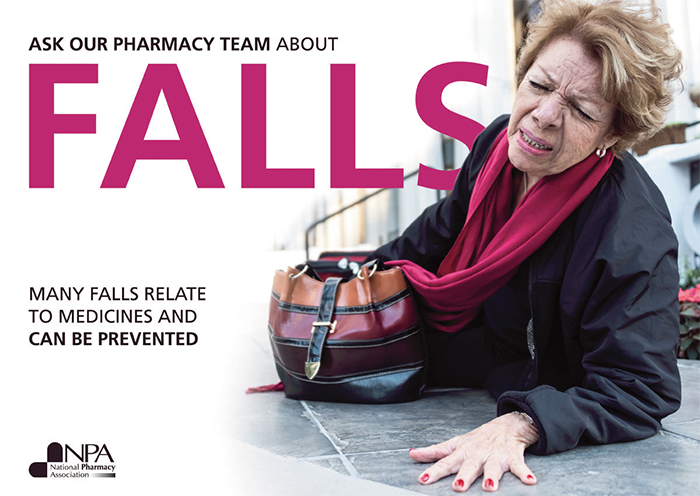NPA viewpoint: managing falls
In In-depth
Follow this topic
Bookmark
Record learning outcomes
The NPA's head of communications, Stephen Fishwick, explains why pharmacy teams are well placed to offer advice and help customers manage the risks of falls

In the UK, falls are the most common cause of injury-related death in people over 75 years of age. Through the natural ageing process, our vision worsens and muscles tend to grow weaker, affecting our stability, balance and strength and this increases the likelihood of falling. Yet this is not an inevitable consequence of old age.
There are many factors that can increase the risk of falls, which with careful management can be reduced, if not eliminated altogether. The development of certain health conditions, such as low blood pressure, dementia or heart disease, may cause falls as they can lead to dizziness or even a brief loss of consciousness. Likewise, diabetes and Parkinson's disease can impair mobility, which may make a fall more likely.
When it comes to medication, almost any drug that acts on the brain or circulation can cause a fall. Drugs that act on the brain include sedatives, certain painkillers, antidepressants, anti-epileptics and drugs for Parkinson's disease. Drugs acting on the heart and circulation include diuretics and other drugs used for high blood pressure. In addition, taking a high number of medicines can increase the risk of a fall.
This is due to a greater likelihood of interactions €“ i.e. the effect different drugs have on each other when administered together. Completely removing the risk of a fall is impossible. However, pharmacists and pharmacy teams can give valuable advice to minimise the risk.
Pharmacy window posters and template local media columns about falls are the latest materials to be added to the NPA's suite of health promotion resources. Here are some of the key points:
- Keeping active and exercising as much as possible is important to strengthen muscles and improve balance
- Drinking alcohol can not only affect balance and co-ordination, but can also exaggerate the effects of some medicines, such as painkillers, which cause drowsiness. Avoiding alcohol or reducing alcohol intake can reduce the risk of having a fall
- Even a short-term illness such as flu could make a person very weak and lead to a fall
- Customers can lower their chances of catching flu by having a flu vaccination
- An MUR could be an opportunity to discuss the risk of drug interactions and take any necessary action.
In the UK, falls are the most common cause of injury-related death in people over 75 years of age
